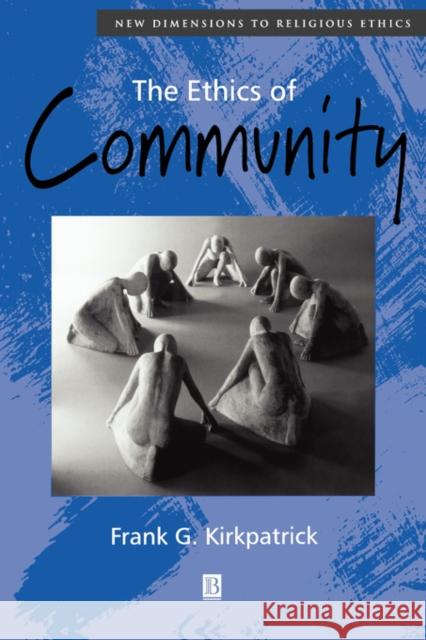The Ethics of Community » książka



The Ethics of Community
ISBN-13: 9780631216834 / Angielski / Miękka / 2001 / 200 str.
The Ethics of Community
ISBN-13: 9780631216834 / Angielski / Miękka / 2001 / 200 str.
(netto: 220,70 VAT: 5%)
Najniższa cena z 30 dni: 228,91
ok. 30 dni roboczych.
Darmowa dostawa!
In this important and timely study, Frank Kirkpatrick draws on theology, political philosophy and the social sciences more generally to develop a Christian ethic of community.
"In the
Ethics of Community, Frank Kirkpatrick has written a scholarly dissertation on the roots of the idea of community and state in Biblical and secular thought. I am grateful to Dr. Kirkpatrick for this book, which raises all the right questions."
Good News, The Newspaper of the Epis
copal Diocese of Connecticut
"This is a work of theological ethics, but one informed by philosophy and conversant with Western history...This is a scholarly book, written on a theoretical level and in an abstract style for fellow scholars. It is appropriate for research libraries in the fields of theology, philosophy, and history." Choice
"I can see this book being used not only by students in the academy, but also by congregational communities such as the author defines. In this way the ethics of community will spread from the classroom into the church community, and through both hopefully into all of society." Reviews in Religion and Theology
"Kirkpatrick′s chief strength is an understanding of the teleology that is specific to the church and how it informs the way church and society interact." Journal of Religion
Introduction.
1. Moral and Scriptural Foundations.
Scripture and the Ethics of Community.
Scripture and Community.
2. Historical Experiments in Community: Europe.
Community in the Monastic Tradition.
Medieval Society.
Economic Ethics.
Calvin and Geneva.
Anabaptists and Community.
3. Historical Experiments in Community: America.
The Puritans.
The American Revolution.
The Creation of the American Republic.
From Madison to Communalism.
Communalism.
The Social Gospel.
Reinhold Niebuhr.
The Struggle Between Individualism and Community in America Today.
4. Building A Philosophy of Community.
John Macmurray and the Philosophy of Community.
5. Political Philosophies of Society.
From Private to Public.
Political Philosophies.
6. Community and Society: Difference and Engagement.
A Theology of Difference.
A Theology of Engagement.
Community for Society.
Society for Community.
7. Turning Inward to Community: The Family and The Danger of Too Much Community.
The Family as Community.
Dangers of Too Much Community.
8. Working Outward From Community: Economic Justice and International Order.
A Good and Just Society.
The Ethics of Economic Justice.
The International Order.
9. Conclusion.
Bibliography.
Index.
Frank G. Kirkpatrick is Professor of Religion at Trinity College in Hartford, Connecticut. He is the co–editor of the series ′Blackwell Religious Ethics′ and is author of many books and articles, including Living Issues in Ethics (with Richard Nolan), Community: A Trinity of Models, Together Bound: God, History, and the Religious Community, and To Gather the Nations: A Christian Ethic of Flourishing and Justice in a Postmodern Age.
We live today in a world dominated by large political, economic and social institutions; yet we long for the intimacy of smaller, more directly personal communities. This tension between ′individualism′ and ′fellowship′ is central to communitarian ethics.
Frank Kirkpatrick′s important and timely study sets out to identify a Christian ethic of community which accounts for the whole range of forms of human association, exploring the significant differences between them. He argues that a realistic Christian ethic of community must address the relationship between the religious aspiration for community and the political necessity for society. Drawing on theology, political philosophy and the social sciences generally, Kirkpatrick develops a ′philosophy of the personal′ which can guide us towards understanding what a good society and a fulfilling community ought to be and which might ultimately help us to achieve a greater sense of personal meaning and fulfilment.
1997-2026 DolnySlask.com Agencja Internetowa
KrainaKsiazek.PL - Księgarnia Internetowa









